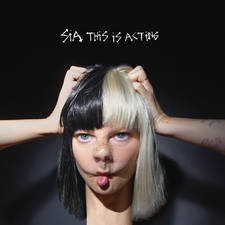What is Iran's 'axis of resistance'? The groups across the Middle East supported by Tehran
1 October 2024, 09:21 | Updated: 1 October 2024, 21:35

While Hezbollah is the most powerful and well-armed of Iran's proxies - the so-called "axis of resistance" spreads far and wide.
Iran's Revolutionary Guards and its elite Quds Force give out millions of dollars in funding to arm and train militia groups throughout the Middle East to assert power in the region.
The axis is a key part of Iran's foreign policy, which aims to destabilise "rivals" such as Israel and Saudi Arabia.
All of which is why the world is waiting to see how Iran responds to Israel attacking Hezbollah in Lebanon.
Here, Sky News looks at the different forces in countries throughout the Middle East that are backed by Tehran.
Hezbollah
Hezbollah has been of particular concern for Israel in recent weeks, with the Israeli military beginning a ground operation on Tuesday.
The group's heavy presence in southern Lebanon, near the border with Israel, makes it of huge strategic importance to Tehran.
Last weekend, Hezbollah's Shia political and military faction leader Hassan Nasrallah was killed in Israeli attacks in Beirut.
A passionate and fiery orator, Nasrallah was one of the most influential leaders within Iran's "axis of resistance". His death was seen as a big blow to all the groups involved.
Hamas and Palestinian groups
Iran also provides funding to Hamas, with analysts believing the group's use of drones to help overwhelm Israel's famous Iron Dome defence system in the 7 October attack was proof of Iranian involvement.
However, Tehran temporarily withdrew funding from Hamas when it came out in support of anti-Assad protesters in Syria during the civil war.
Its smaller rival, the Palestinian Islamic Jihad, also receives funding from Iran, as does the Popular Front for the Liberation of Palestine (PFLP) and the Democratic Front for the Liberation of Palestine (DFLP).
Sky's military analyst Professor Michael Clarke said in October last year these smaller groups are "not very well organised".






















